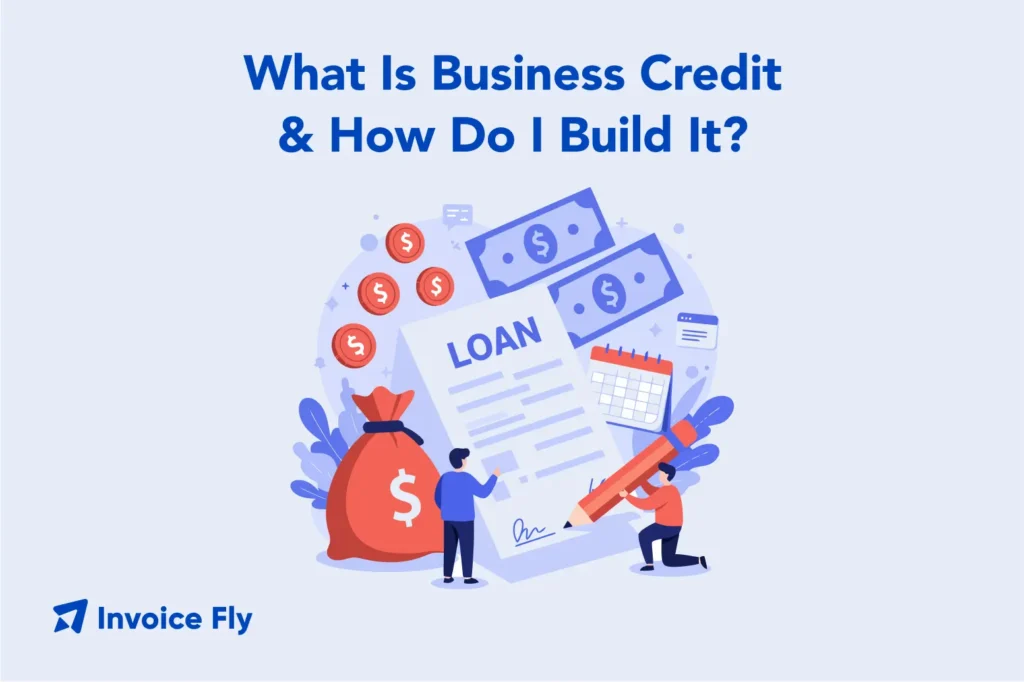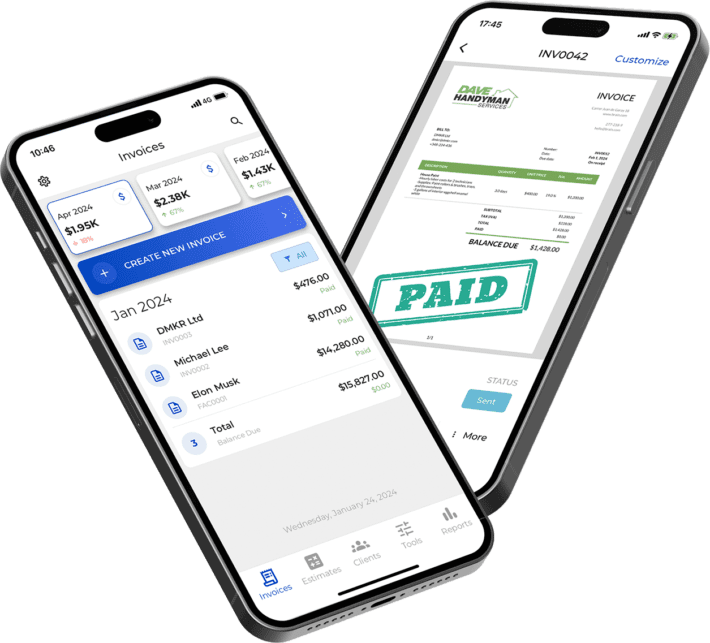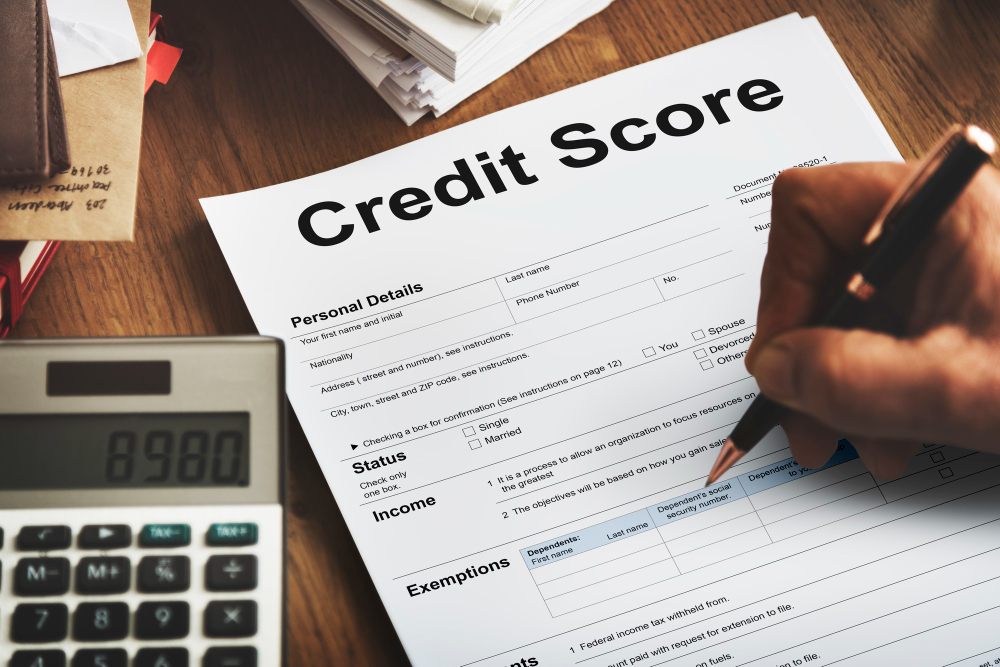What Is Business Credit & How Do I Build It?

Table of Contents
- What Is Business Credit?
- Why Business Credit Is Important
- Business Credit vs Personal Credit
- How To Start Building Business Credit (Step-by-Step)
- How Long Does It Take to Build Business Credit?
- How To Build Business Credit Without Using Personal Credit
- How To Build Business Credit for LLC
- Maintaining and Growing Business Credit
- Common Mistakes That Hurt Business Credit
- Build Business Credit With Confidence
- FAQs About Building Business Credit
Running a successful business takes ambition but more importantly, requires credibility for longevity. When you’re applying for financing, leasing equipment, or negotiating with suppliers, your business credit speaks for you before you even walk in the room.
A strong credit profile gives you access to better loan rates, more flexible payment terms, and can even lower your insurance costs. But if your business credit is weak or nonexistent, you’ll face unnecessary hurdles. This is true even if your personal credit is in great shape.
The reality is, banks, vendors, and investors look at your business credit to decide whether you’re worth the risk. Building it isn’t just smart. It’s essential for growth.
In this guide, we’ll cover:
- What business credit is and how it works
- Why business credit matters for small businesses
- How to build business credit fast and without personal guarantees
- How to monitor and protect your credit scores
- FAQs on timelines and best practices
What Is Business Credit?

Business credit represents your company’s ability to borrow and manage money responsibly. It’s an independent financial profile tied to your company’s EIN (Employer Identification Number) — not your personal Social Security number.
Credit bureaus such as Dun & Bradstreet, Experian Business, and Equifax Business collect information on how your company pays bills, manages debt, and interacts with vendors. These bureaus create business credit reports and scores that lenders, insurers, and suppliers use to evaluate risk.
A strong score signals reliability to potential creditors, helping your company qualify for financing and negotiate better contract terms.
Your business credit score is influenced by:
- Payment history: On-time or early payments are key.
- Credit utilization: Keep balances below 30%.
- Account diversity: Maintain a mix of credit lines, cards, and vendor accounts.
- Public records: Bankruptcies, liens, or judgments lower your score.
Understanding how each credit bureau operates helps you verify that your data is accurate and that your vendors are reporting payments correctly.
Get Started with Invoice Fly’s Software
Invoice Fly is a smart, fast, and easy-to-use invoicing software designed for freelancers, contractors, and small business owners. Create and send invoices, track payments, and manage your business — all in one place.

Why Business Credit Is Important
Good business credit can mean the difference between winning a contract and missing out on it. Lenders, suppliers, and even landlords rely on these scores when deciding whether to work with you.
Strong business credit allows you to:
- Secure small-business loans or credit lines with lower interest rates.
- Obtain higher credit limits with creditors such as banks and financial institutions.
- Access Net 30 accounts and trade credit from vendors without prepayment.
- Protect personal finances by separating business liability.
- Qualify for competitive insurance premiums and better lease terms.
According to the U.S. Chamber of Commerce, building credit early sets up small businesses for sustainable growth, proving you can manage financial obligations independently.
Business Credit vs Personal Credit
Although both measure creditworthiness, they serve different purposes and are tracked by separate systems.
| Aspect | Business Credit | Personal Credit |
| Identifier | EIN (Employer Identification Number) | Social Security Number |
| Credit Bureaus | Dun & Bradstreet, Experian Business, Equifax Business | Experian, Equifax, TransUnion |
| Creditors | Vendors, lenders, and suppliers | Banks, credit card issuers |
| Liability | Linked to the business entity | Linked to the individual |
| Impact | Affects business funding, insurance, and supplier relationships | Affects personal loans, mortgages, and credit cards |
Keeping your business and personal credit separate prevents risk crossover — ensuring late payments or debts in one area don’t affect the other.
How To Start Building Business Credit (Step-by-Step)
Here’s how to start from scratch and establish your business’s credit foundation the right way. These steps work for any structure — whether you’re forming an LLC, sole proprietorship, or corporation.
Step 1 – Register Your Business and Get an EIN
Before you can apply for credit, your business must exist legally.
- Register your entity with your state.
- Apply for an EIN on the IRS website.
- Use a dedicated business address, email, and phone number across all documents.
This official setup helps separate personal and business finances.
Step 2 – Open a Business Bank Account
Once registered, open a dedicated checking account for your business. This helps establish a financial footprint and proves your company operates independently.
Consistent deposits and payments from this account help lenders verify legitimacy.
Learn more in Small Business Bank Account.
Step 3 – Apply for a Business Credit Card
A credit card that reports to D&B, Experian, and Equifax Business is crucial for early credit growth.
- Keep utilization below 30%.
- Pay off balances in full each month.
- Use it for recurring expenses like software or materials.
This is a key tactic in how to build small business credit efficiently, especially if you’re just starting out and need fast traction.

Step 4 – Work With Vendors Who Report to Credit Bureaus
Establish Net 30 or Net 60 accounts with suppliers who report payment history. Reliable options include Uline, Grainger, and Quill. Paying these invoices early helps you build credibility with creditors and improves your PAYDEX score.
Pro tip: Always confirm your vendors report to at least one credit bureau before opening an account. Without reporting, your on-time payments won’t help your score.
For accurate recordkeeping, visit Small Business Bookkeeping.
Step 5 – Pay Bills and Loans on Time
Payment history has the most significant impact on your business credit score. Late payments can drop your rating dramatically. Schedule recurring payments and use automated invoicing tools.
Need a better way to manage billing? Try Invoice Fly’s Invoicing Software — it’s free and helps you avoid missed due dates.
Get Started with Invoice Fly’s Software
Invoice Fly is a smart, fast, and easy-to-use invoicing software designed for freelancers, contractors, and small business owners. Create and send invoices, track payments, and manage your business — all in one place.

Step 6 – Monitor Your Business Credit Report
Check your reports regularly through D&B, Experian Business, or Equifax Business. Use monitoring tools like NAV or the SBA Credit Builder Program to track changes and dispute inaccuracies.
Consistent oversight ensures your vendors are reporting properly and helps detect fraudulent activity early.
How Long Does It Take to Build Business Credit?

Building business credit doesn’t happen overnight. It typically takes six to twelve months of consistent payments and credit activity to develop a solid profile.
Factors influencing the timeline include:
- The number of active trade lines
- Payment punctuality
- Business age and revenue
- Credit utilization ratios
Those starting from scratch often ask how long does it take to build business credit or how to build business credit fast and the short answer is: patience and precision. Pay early, maintain multiple accounts, and review reports monthly to strengthen your file.
If you’re forming a limited liability company, see our guide on How to Write a Business Plan for ideas to support your credit-building goals.
How To Build Business Credit Without Using Personal Credit
Many small-business owners want to keep personal credit separate from company debt. Here’s how to do it safely:
- Always apply using your EIN, not your SSN.
- Avoid personally guaranteed cards when possible.
- Build relationships with suppliers who approve Net 30 terms without personal checks.
- Register with business directories like D&B to ensure visibility.
Following this method shows creditors you can handle business obligations independently, improving your credibility with future banks and investors.
How To Build Business Credit for LLC

LLCs can build credit faster because they already provide legal separation from personal assets.
Steps to focus on:
- Open a business checking account in your LLC’s name.
- Apply for vendor lines and business cards that report to credit bureaus.
- Keep your registered information consistent across EIN, bank, and utility accounts.
These are essential for building LLC business credit and demonstrate that your business operates as a legitimate, creditworthy entity.
Maintaining and Growing Business Credit
Once you’ve built a foundation, maintain it by:
- Keeping credit utilization below 30%.
- Checking reports quarterly for errors.
- Expanding trade lines gradually with reputable creditors.
- Avoiding unnecessary inquiries or multiple new accounts at once.
If cash flow becomes inconsistent, review Cash Flow Problems for solutions to keep accounts current.
Common Mistakes That Hurt Business Credit
- Mixing personal and business expenses – makes tracking and reporting unclear.
- Late payments – the fastest way to lose credibility.
- Ignoring your credit report – errors can go unnoticed and harm your rating.
- Not establishing enough reporting accounts – limits score growth.
- Overextending with too many lines of credit – shows instability to creditors.
Following a steady plan for how to build your business credit ensures long-term benefits without unnecessary risks.
Build Business Credit With Confidence
Learning how to build credit for your business takes time, consistency, and the right strategy, but the payoff is worth it. With strong credit, your business gains access to loans, better supplier terms, and the financial independence needed to grow sustainably.
Whether you’re just forming an LLC or managing a small business, follow these steps: register your business, open accounts, pay on time, and monitor your credit. Within a year, your company can establish a solid reputation with banks and creditors alike.And when you’re ready to simplify billing and keep payments flowing, manage everything from one place with Invoice Maker. Built for small-business owners who want to stay organised and get paid faster.
Get Started with Invoice Fly’s Software
Invoice Fly is a smart, fast, and easy-to-use invoicing software designed for freelancers, contractors, and small business owners. Create and send invoices, track payments, and manage your business — all in one place.

FAQs About Building Business Credit
Not if you start early. Register your business, use trade accounts, and pay consistently for at least six months.
Use Net 30 vendors, apply for business credit cards that report to all three major bureaus, and pay bills early.
Yes. Many small vendors approve early accounts for startups that demonstrate steady payment history.
Absolutely. Apply for an EIN, open a bank account, and establish at least three reporting trade lines.
You can apply immediately after forming your LLC or corporation, provided you have an EIN and basic business documentation.
